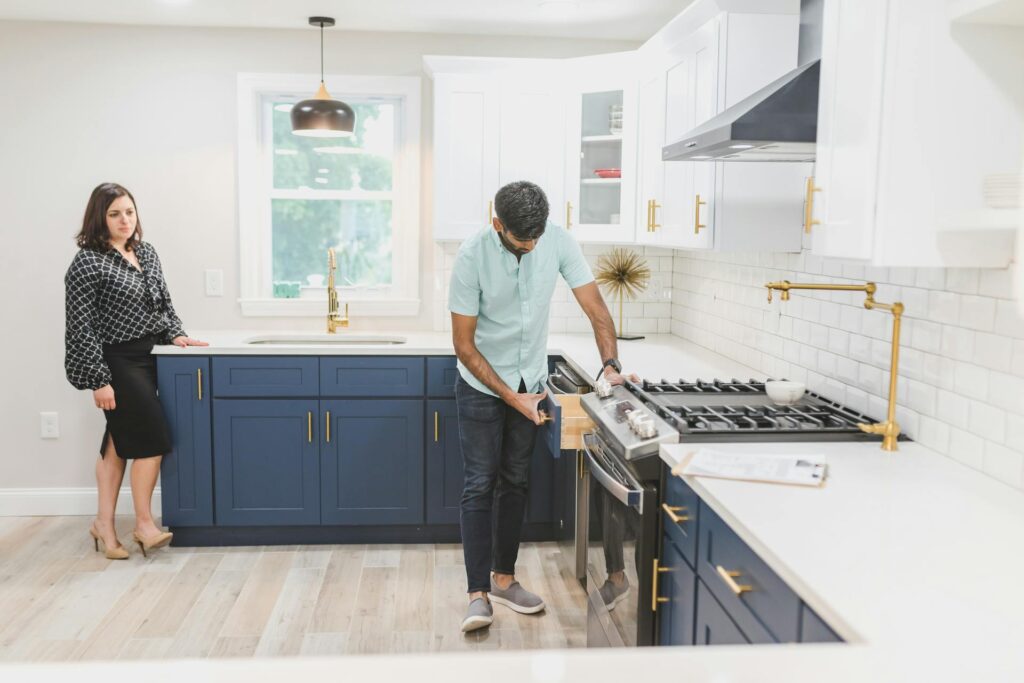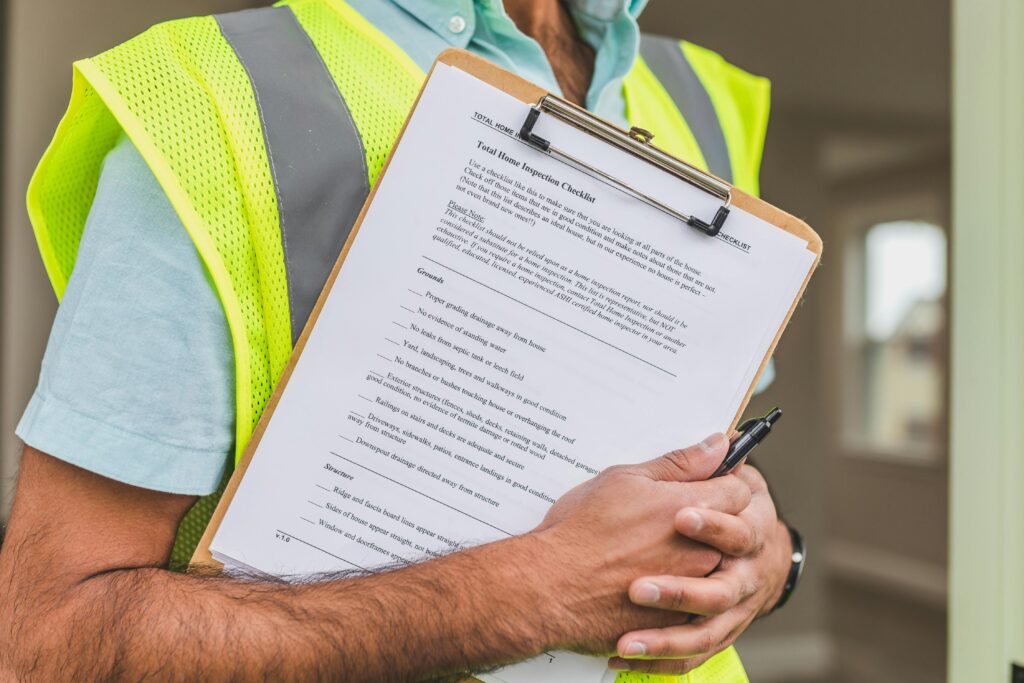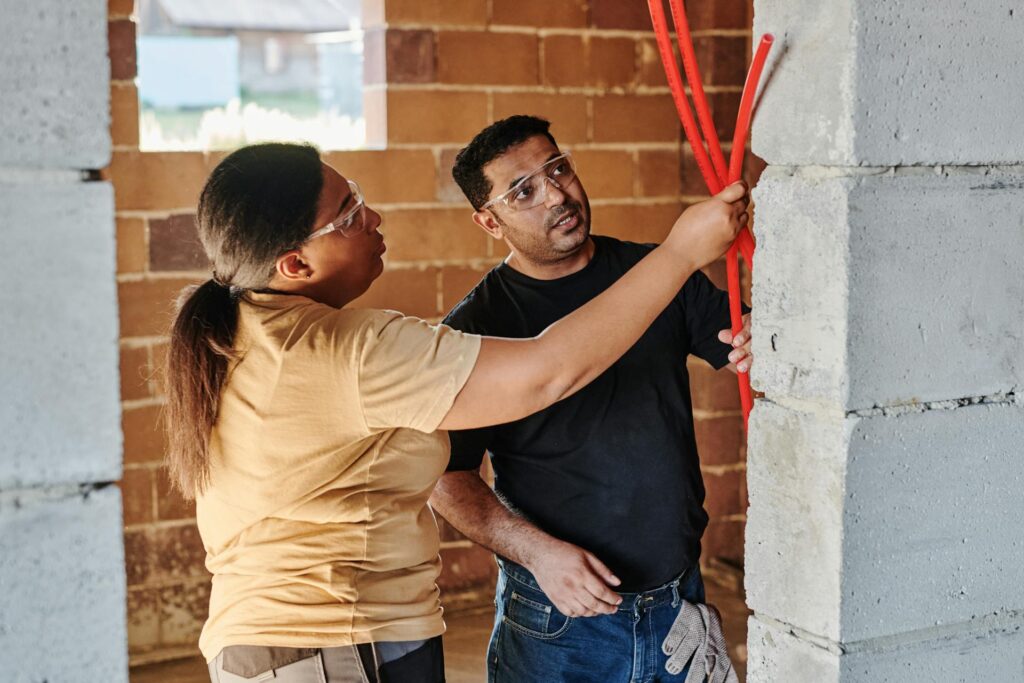Purchasing property in Portugal is an exciting venture, whether you’re drawn by the sun-drenched coastlines, charming historic cities, or the burgeoning real estate market. However, before signing on the dotted line, conducting a thorough property and house inspection is crucial. This process ensures that your investment is sound, uncovering any potential issues that might not be immediately visible. In this guide, we delve into the importance of property inspections in Portugal, outline what to expect during the process, and provide tips on finding a reliable inspector.
What is the Purpose of a House Inspection?
The purpose of a house inspection is to provide a comprehensive assessment of the property’s condition, ensuring that buyers are fully informed about any potential issues before finalizing their purchase. Key objectives of a house inspection include:
Identifying Structural Issues: Inspectors check the foundation, roof, walls, and other structural elements for any signs of damage or wear that could affect the property’s stability and safety.
Evaluating Systems and Components: The inspection covers essential systems such as electrical, plumbing, heating, and cooling to ensure they are functioning properly and meet safety standards.
Detecting Potential Hazards: Inspectors look for issues like mold, asbestos, lead paint, or pest infestations that could pose health risks to the occupants.
Assessing Maintenance Needs: The inspection highlights areas that may require immediate repairs or ongoing maintenance, helping buyers anticipate future costs and upkeep.
Providing Negotiation Leverage: Armed with the inspection report, buyers can negotiate with sellers for repairs or price adjustments based on the findings.
Ensuring Compliance with Regulations: The inspection ensures that the property adheres to local building codes and regulations, avoiding potential legal issues.

Benefits of a Pre-Purchase Inspection
A pre-purchase inspection offers significant benefits to prospective property buyers, ensuring a well-informed decision and safeguarding their investment. Here are the key advantages:
Uncover Hidden Issues and Ensure Safety: Reveals problems not visible during a casual viewing, such as structural damage, plumbing issues, or electrical faults, and uncovers safety hazards like faulty wiring, mold, or structural weaknesses, ensuring the property is safe for occupancy.
Financial Savings and Negotiation Leverage: Identifying issues before purchasing allows buyers to negotiate repairs or price reductions with the seller, potentially saving significant money on unforeseen repairs. The inspection report provides concrete evidence for these negotiations, leading to a fairer deal.
Informed Decision-Making and Peace of Mind: Provides a detailed report on the property’s condition, enabling buyers to decide whether to proceed with the purchase or explore other options. This reduces anxiety and uncertainty, giving buyers confidence in their investment.
Future Planning and Compliance: Helps buyers plan for future maintenance and renovations, ensuring preparedness for upcoming expenses. Ensures the property meets local building codes and regulations, avoiding potential legal issues.
How Do I Arrange a House Inspection in Portugal?
Arranging a house inspection in Portugal involves several steps to ensure a thorough assessment of the property. Here’s a guide to help you through the process:
1. Find a Qualified Inspector
Look for certified property inspectors with experience and knowledge of local building practices and regulations in Portugal. You can ask for recommendations from your real estate agent or seek referrals from friends who have recently purchased property.
2. Schedule the Inspection
Once you’ve identified a reputable inspector, contact them to schedule a convenient time for the inspection. Coordinate with the seller or real estate agent to ensure access to the property on the agreed-upon date.
3. Prepare Documentation
Gather necessary documents such as the property listing, purchase agreement (if available), and any specific concerns or questions you have about the property.
4. Attend the Inspection (if possible)
While not always necessary, attending the inspection allows you to see firsthand any issues the inspector identifies and ask questions on the spot.
5. Review the Inspection Report
After the inspection, the inspector will provide a detailed report outlining their findings, including any areas of concern or recommended repairs. Take the time to carefully review this report.

The process of house inspection?
A house inspection typically involves several key phases to ensure a thorough evaluation of the property. Here are the main phases of a house inspection:
Preparation and Planning
- Scheduling: Arrange a convenient time for the inspection with the seller or real estate agent.
- Documentation: Gather all relevant documents, including the property listing, purchase agreement, and any specific concerns or questions you have about the property.
- Inspector Selection: Choose a qualified and experienced inspector familiar with local building codes and standards.
Exterior Inspection
- Foundation: Check for cracks, settling, or other signs of structural issues.
- Roofing: Examine the condition of the roof, including shingles, gutters, and flashing.
- Exterior Walls: Look for cracks, rot, or damage to the siding or brickwork.
- Windows and Doors: Assess the condition of frames, seals, and glass.
- Landscaping: Evaluate grading, drainage, and the condition of driveways, walkways, and other external features.
Interior Inspection
- Structural Components: Inspect walls, ceilings, and floors for cracks, stains, or other signs of damage.
- Electrical Systems: Check outlets, switches, wiring, and the main panel for safety and functionality.
- Plumbing Systems: Evaluate pipes, fixtures, water heaters, and drainage for leaks or defects.
- HVAC Systems: Assess heating, ventilation, and air conditioning units for proper operation and maintenance.
- Basement and Attic: Look for signs of moisture, mold, insulation quality, and structural integrity.
Reporting and Recommendations
- Detailed Report: The inspector compiles a comprehensive report outlining their findings, including photos and descriptions of any issues.
- Recommendations: The report includes suggestions for necessary repairs, maintenance, or further evaluations by specialists (e.g., structural engineers, pest inspectors).
- Review: Take the time to carefully review the report and discuss any concerns with the inspector or your real estate advisor.
Follow-Up Actions
- Negotiations: Use the inspection report to negotiate repairs or price adjustments with the seller.
- Repairs and Maintenance: Plan and budget for any required repairs or maintenance identified in the inspection.
- Final Decision: Decide whether to proceed with the purchase, request repairs, or potentially walk away from the deal based on the inspection findings.

Frequently Asked Questions About Property and House Inspection in Portugal
How often should a property be inspected?
Generally, a property should be inspected before purchase to identify any potential issues. After purchase, it’s advisable to have periodic inspections, especially for older properties. Regular inspections every 3-5 years can help maintain the property and address minor issues before they become major problems.
How much can a house inspection cost in Portugal?
The cost of a house inspection in Portugal can vary based on the size, age, and location of the property, as well as the inspector’s experience and the scope of the inspection. Generally, prices range from €300 to €600. Additional specialized inspections may incur extra costs.
What is not included in a regular house inspection in Portugal?
A regular house inspection typically does not include specialized inspections such as:
- Pest Inspections: Separate inspection for termites, rodents, or other pests.
- Chimney Inspections: Detailed check of the chimney and fireplace.
- Septic System Inspections: Examination of septic tanks and related systems.
- Environmental Testing: Testing for radon, asbestos, lead paint, or mold.
- Pool Inspections: Detailed inspection of swimming pools or hot tubs.
What if I buy a property in Portugal without an inspection?
Purchasing a property without an inspection can be risky. Without a thorough assessment, you may be unaware of structural issues, safety hazards, or necessary repairs. This could lead to significant unexpected costs and legal issues in the future. An inspection provides peace of mind and helps ensure you are making a sound investment.
How long does a typical house inspection take?
The duration of a house inspection depends on the size and condition of the property. Generally, a standard inspection for an average-sized home takes between 2 to 4 hours. Larger or older properties might require more time.
Can I attend the house inspection?
Yes, attending the house inspection is recommended. It allows you to see firsthand any issues the inspector identifies and ask questions on the spot. This can provide a clearer understanding of the property’s condition and any potential concerns.
Are new constructions exempt from inspections?
No, new constructions should also be inspected. Even new properties can have construction defects, code violations, or unfinished work that might not be immediately apparent. An inspection ensures everything is built correctly and safely.
Can an inspection affect my mortgage approval?
Yes, in some cases. If significant issues are found during the inspection, your lender may require these issues to be addressed before finalizing the mortgage. This ensures the property is a sound investment and mitigates risk for both you and the lender.




